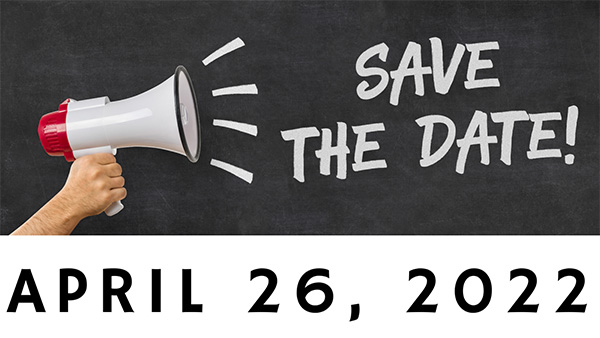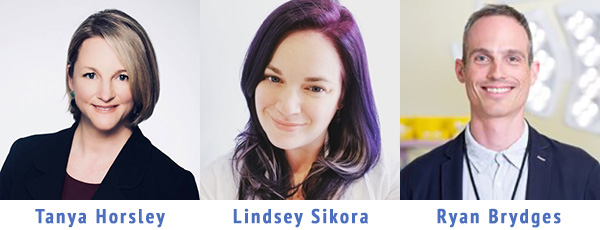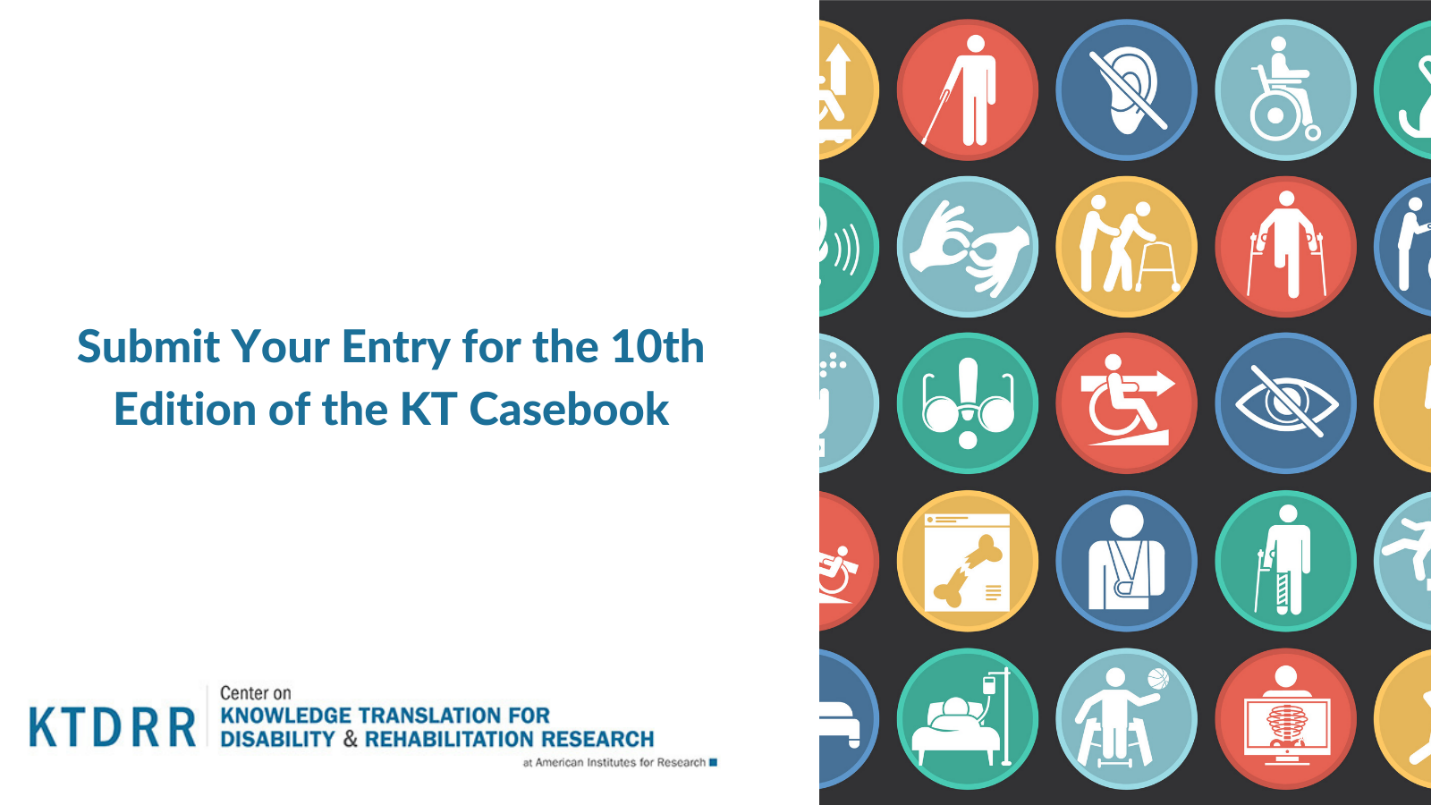April 26, 2022, Workshops
“Outreach to Policymakers” and
“Science Communication and Public Engagement”

Do you remember face-to-face conferences and workshops? They’re back in 2022! Save the date for two workshops the Center on KTDRR is hosting on Tuesday, April 26, 2022, at the Ritz-Carlton Pentagon City in Arlington, Virginia. The NARRTC conference runs April 27–28, 2022. We look forward to seeing you!
1) On the morning of April 26, we will be hosting our “Outreach to Policymakers” workshop, facilitated by Mark Bayer of Bayer Strategic Consulting. Learn about (and practice!) which strategies are best for sharing research information with state and national policymakers. Management Concepts will introduce the workshop with a short presentation describing restrictions on lobbying pertinent to federal grantees. Registration will open at 7:30 a.m., with workshop content presented from 8:00 a.m. to 12:30 p.m., including a 30-minute break.
This workshop was first offered online in January and again in December of 2021. If you missed those online versions,
or want a face-to-face refresher, please join us!
Visit the Outreach workshop information page
You can register at the link below and we’ll keep you up to date on details:
REGISTER NOW
Watch a video about the Communicating with Policymakers Workshop
2) In the afternoon on the same day, you can attend, “live and in person,” the workshop on
“Science Communication and Public Engagement.”
Facilitated by the American Association for the Advancement of Science (AAAS), this workshop was also presented online for
KTDRR in November 2021. Learn fundamentals from current science communication research and basic best practices for
engaging with the public. Participants will develop individual plans that include a public engagement goal and ways
to engage a relevant audience with tailored messages. Attendees will also brainstorm an engagement scenario and
identify steps to put their plans into action. Registration will open at 1:15 p.m., with workshop content
presented from 1:30 to 5:00 p.m., including a 30-minute break.
Visit the Science Communication workshop information page
Let us know you’re “in” and register now!
REGISTER NOW
Note: Both workshops are free and open to the public; however, registration is capped at 15 attendees, and we will give priority to NIDILRR grantees. The Center on KTDRR does not cover travel costs for attendees.
Community of Practice Examines
Best Strategies for Synthesizing Research

KTDRR's Community of Practice on Evidence for Disability and Rehabilitation Research
(CoP-EDR) recently completed a three-part series, “Navigating the Seas of Evidence Synthesis.”
CoP facilitator Dr. Tanya Horsley, The Royal College
of Physicians and Surgeons, led the group in examining approaches to research synthesis and selecting the best method to
answer specific research questions. A systematic review is known as the gold standard but may not always be the best choice. Depending on the context, a scoping review or other research synthesis strategy may be more appropriate.
-
The first session, held on September 23, 2021, focused on the nature, purpose, and value of common synthesis approaches, including
systematic, scoping, realist, and traditional reviews.
-
On November 17, 2021, the second session addressed the types of synthesis methods most suitable for answering specific research
questions and the knowledge produced by these methods.
-
The final session in the series, which took place on February 23, 2022, was a discussion of learnings and experiences from authors
of reviews as case examples. In addition to Tanya Horsley, PhD,
invited presenters were Lindsey Sikora MLIS, PhD(c),
University of Ottawa, and
Ryan Brydges, PhD of the Wilson Centre in Toronto.
The CoP-EDR focuses on the creation, evaluation, and use of evidence and related tools and strategies. For more information,
please contact Joann Starks.
NIDILRR Grantees: Sign up for an interview
and KTDRR staff will draft your
KT Casebook entry for you!
The 10th edition of the KT Casebook is in progress—and your NIDILRR-funded project could be in it!
The KT Casebook showcases how NIDILRR grantees are using innovative, effective, and measured knowledge transfer (KT)
strategies to ensure their research is useful to their audiences.
If you are part of a NIDILRR project, please contact us about submitting an entry for the 10th edition of the
KT Casebook. Our staff will help to draft your entry, starting with information gathered from your project abstract
housed on the website of the National Rehabilitation Information Center,
NARIC.com. Then, we will set up an
interview with you to go over our draft and work with you to elaborate on its details, especially as they relate to the KT activity we’re highlighting.
Check out previous editions of the KT Casebook for examples of featured KT activities. Our most recent edition
highlights grantees from NIDILRR's technology portfolio:
Please let us know if your NIDILRR project should be featured!

|



